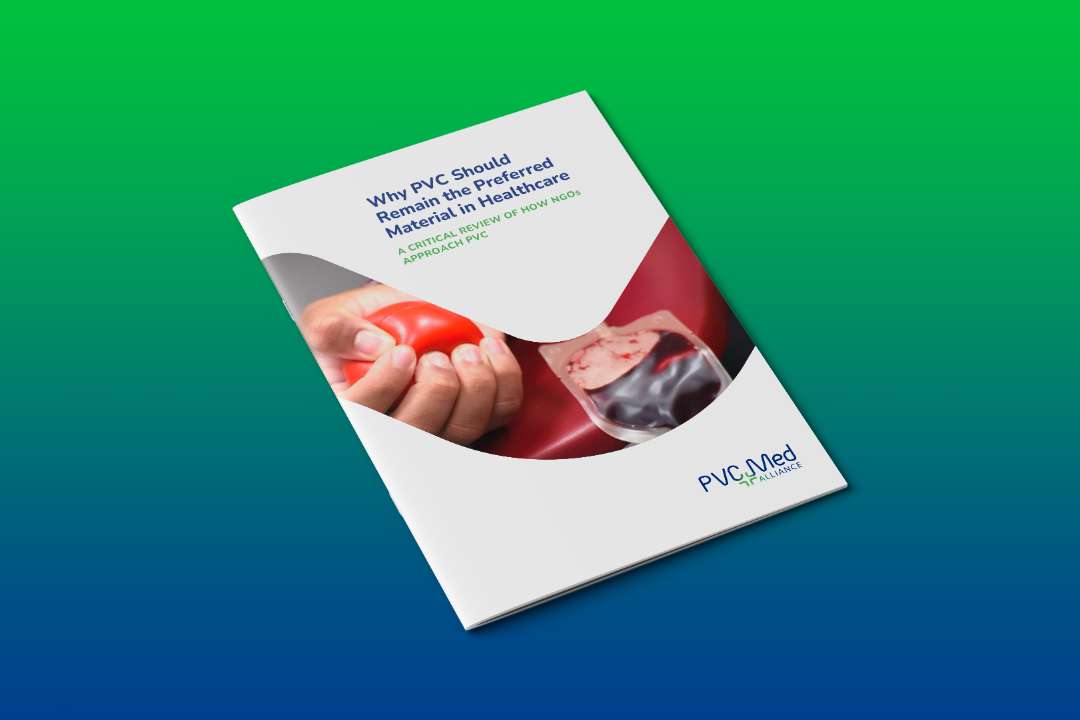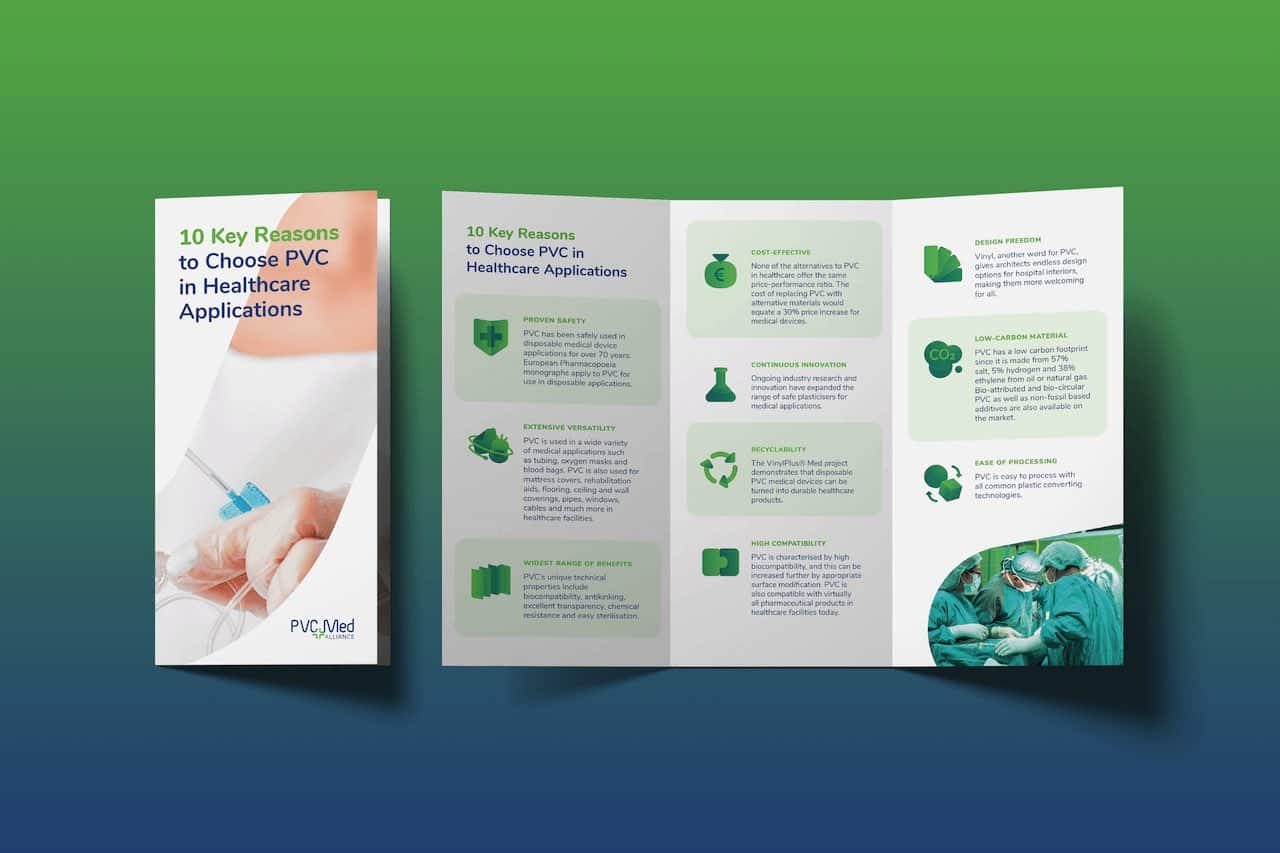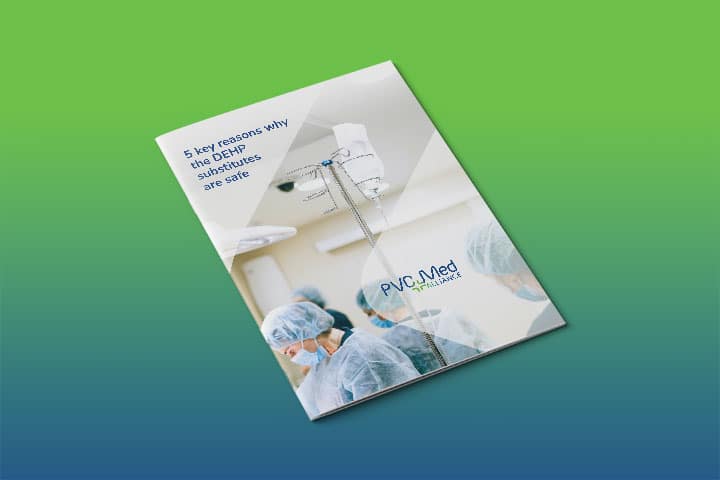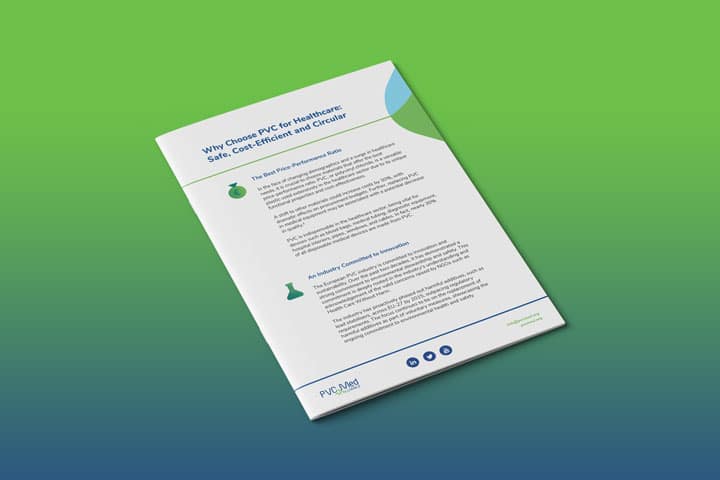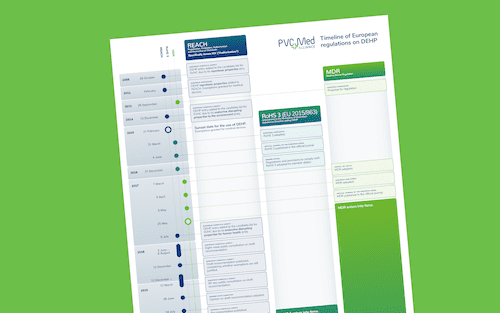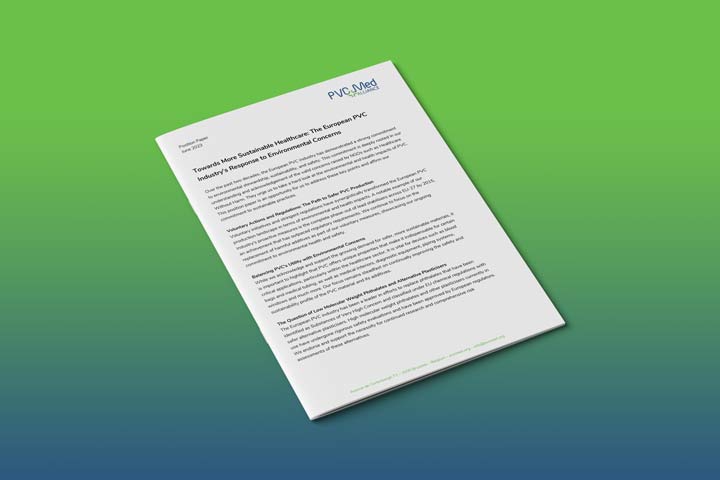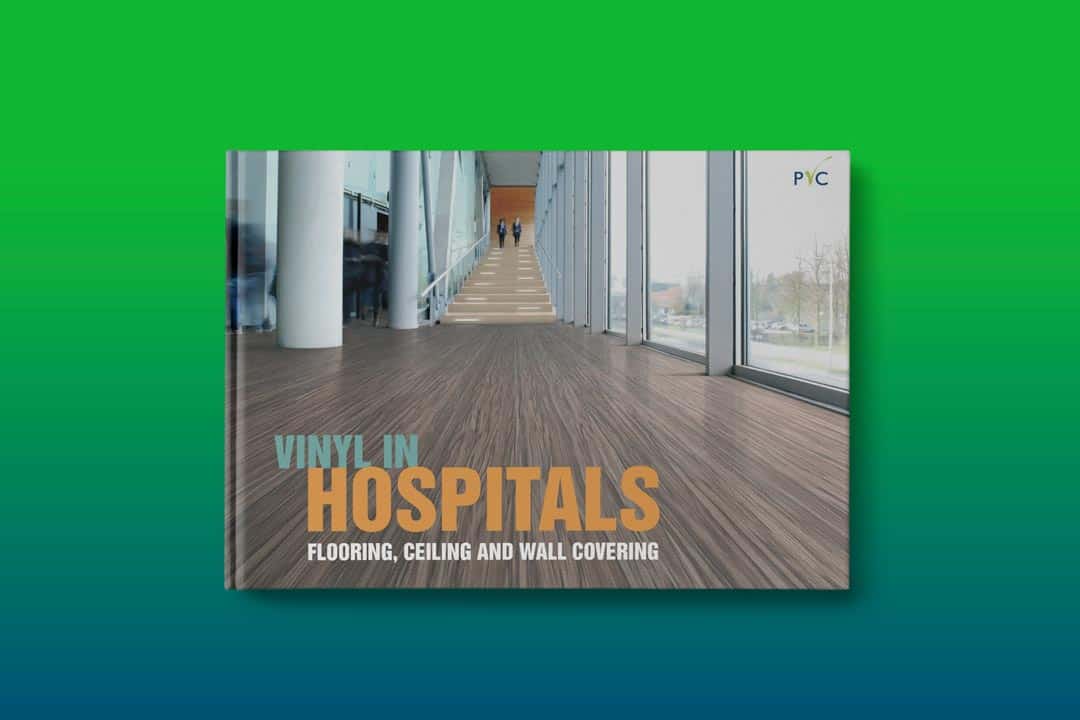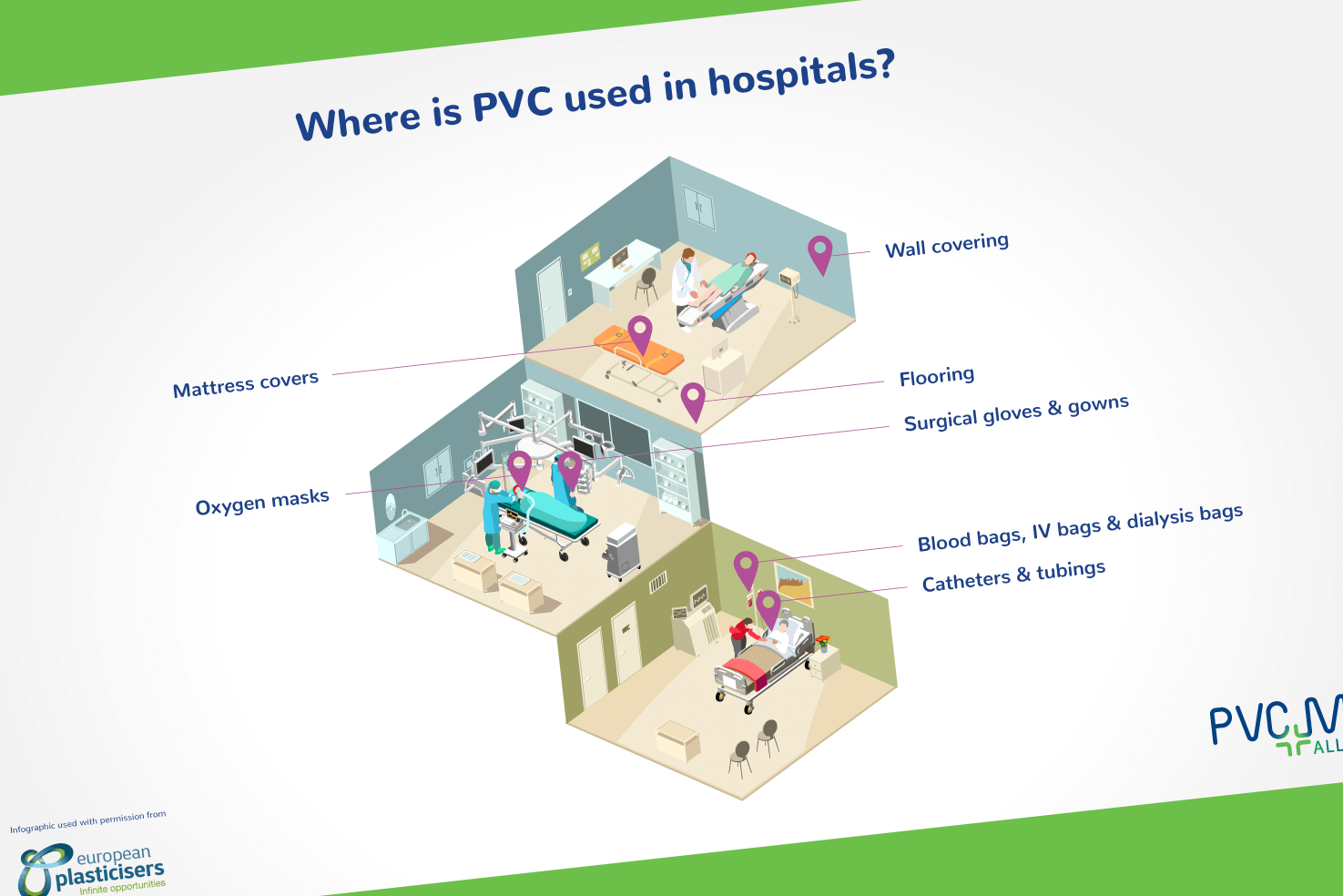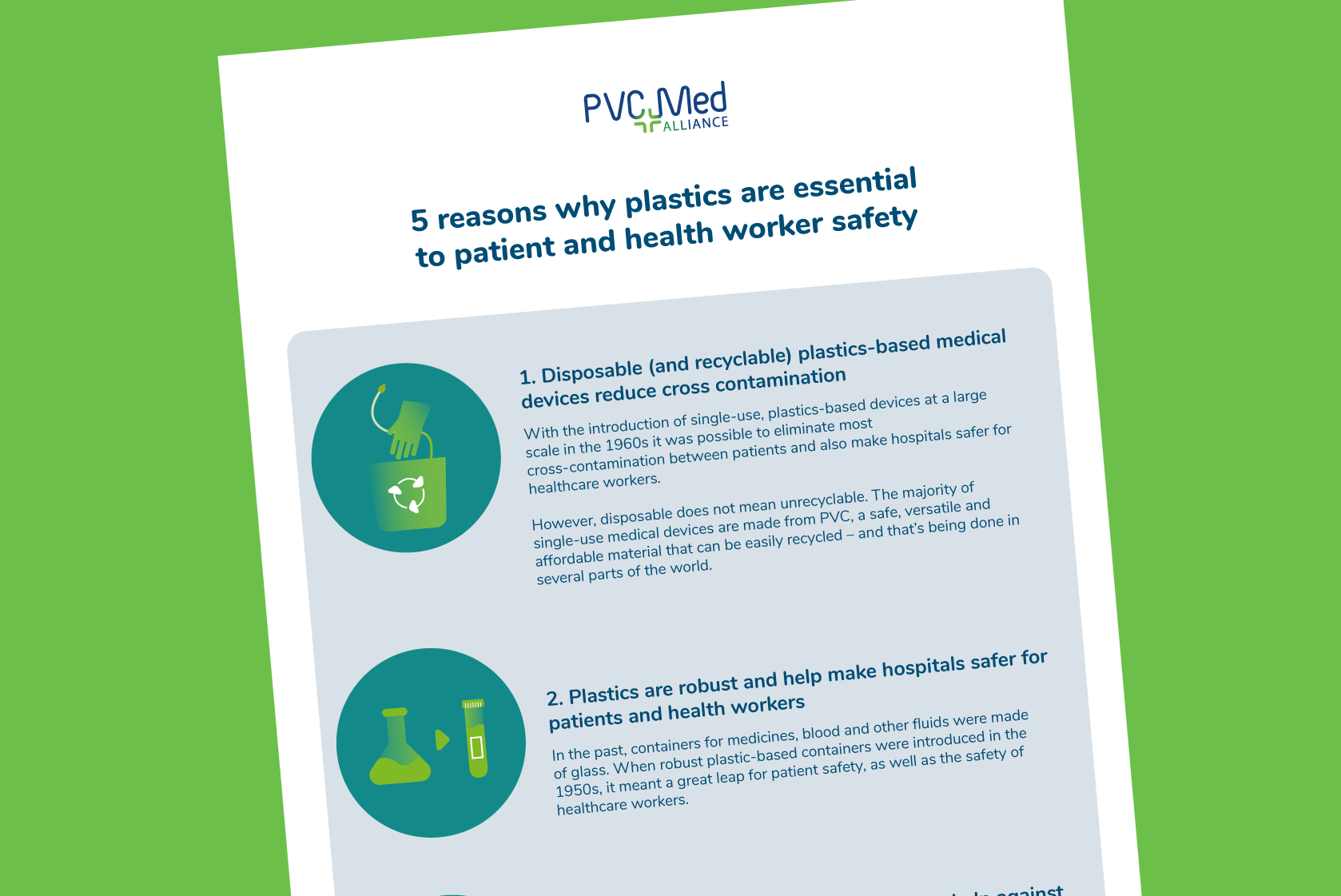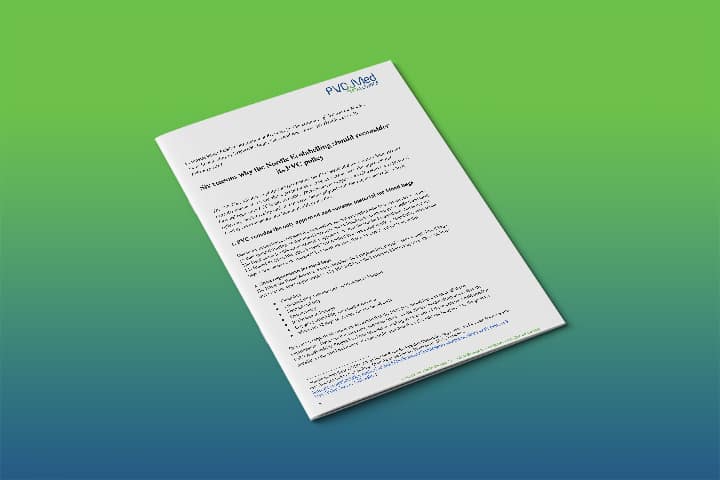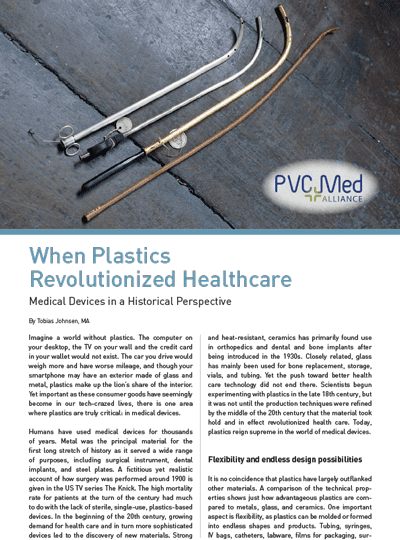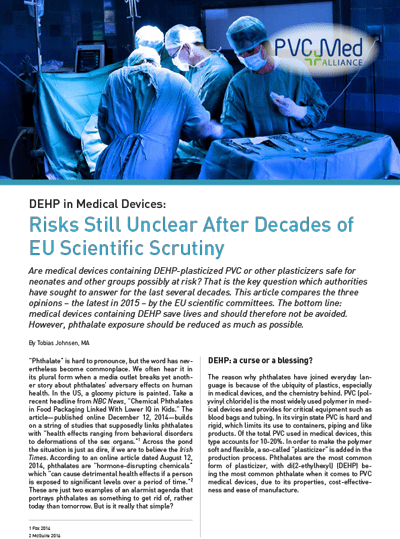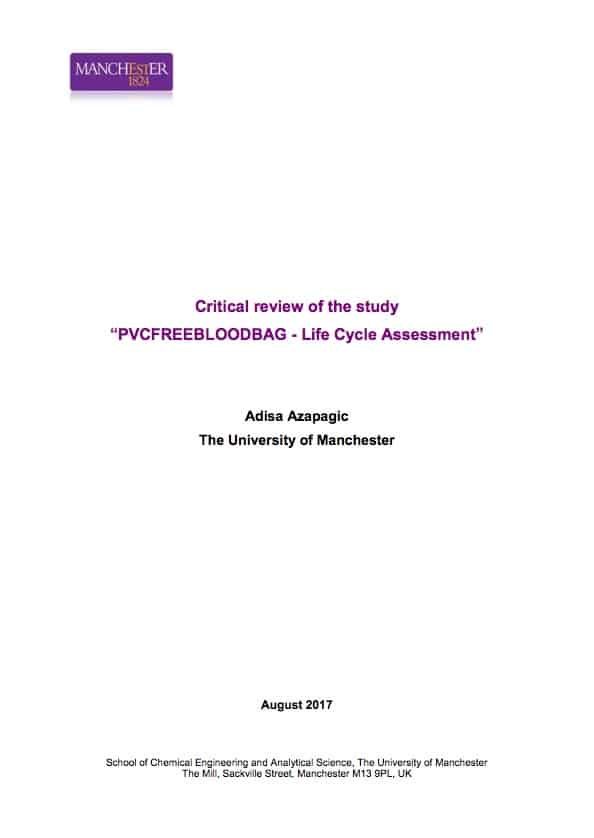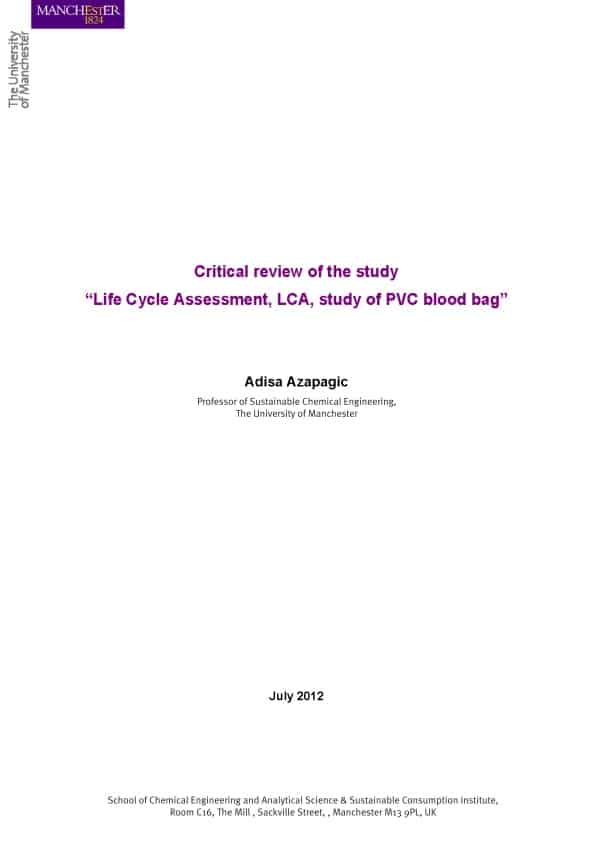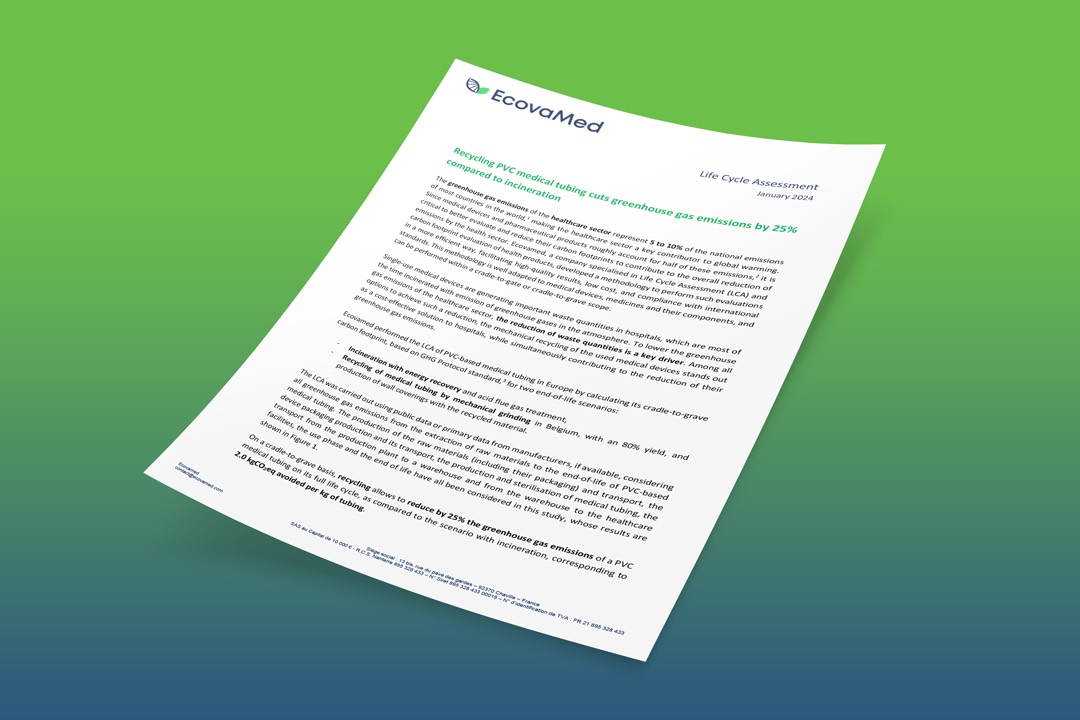
Recycling PVC Medical Tubing Cuts Greenhouse Gas Emissions by 25% Compared to Incineration
Explore Ecovamed's White Paper on the impact of recycling versus incinerating PVC medical tubing.
Why PVC Should Remain the Preferred Material in Healthcare
10 Key Reasons to Choose PVC in Healthcare Applications
Discover 10 key reasons to choose PVC in healthcare applications in our flyer. Printed copies are available upon request. Contact us at info@pvcmed.org.
5 Key Reasons Why the DEHP Substitutes Are Safe
The plasticiser industry has invested more than €6 billion in developing safe alternatives to DEHP for medical applications. Yet some stakeholders are questioning the safety of the new plasticisers, which this document seeks to address.
Why Choose PVC for Healthcare: Safe, Cost-Efficient and Circular
In the evolving landscape of healthcare, PVC (polyvinyl chloride) presents itself as a cost-efficient and versatile material. This fact sheet, targeting hospital managers, delves into the reasons behind PVC's extensive use in the healthcare sector, highlighting its functional properties and economic advantages.
The European PVC industry's commitment to innovation, environmental stewardship, and safety is also discussed, alongside its efforts in phasing out harmful additives and promoting recyclability. Detailed insights into the industry's proactive measures, regulatory compliance, and the role of PVC in a circular economy are provided for a comprehensive understanding.
Timeline of European Regulations on DEHP
In the European Union, the regulation of Di(2-ethylhexyl) phthalate (DEHP) is governed by a comprehensive framework encompassing various legislative instruments. These include the REACH Regulation, the RoHS Directive, and the Medical Device Regulation (MDR). Historically, medical devices were granted certain exemptions from DEHP restrictions, but recent legislative developments have initiated significant changes in this area. Get an overview in our updated timeline.
Towards More Sustainable Healthcare: The European PVC Industry's Response to Environmental Concerns
Over the past two decades, the European PVC industry has demonstrated a strong commitment to environmental stewardship, sustainability, and safety. This commitment is deeply rooted in our understanding and acknowledgement of the valid concerns raised by NGOs such as Health Care Without Harm. They urge us to take a hard look at the environmental and health impacts of PVC. This position paper is an opportunity for us to address these key points and affirm our commitment to sustainable practices.
Vinyl in Hospitals Booklet
PVC is not only an excellent choice for medical devices. In this colourful and richly illustrated booklet, you can read about the many ways in which PVC contributes to state-of-the-art hospital interiors. To acquire printed copies, please write info@pvcmed.org.
Watch video version.
Where is PVC Used in Hospitals?
The plastic PVC, also known as vinyl, is the most used material for disposable medical devices such as blood bags and oxygen masks, but also a primary choice for hygienic hospital flooring. Discover some of the many applications in the infographic.
How PVC Personal Protection Equipment Prevents the Spread of Infections
Health workers are on the frontline during virus outbreaks. Personal protective equipment made of PVC and PVC-based medical devices help against the spread of infections.
5 Reasons Why Plastics Are Essential to Patient and Health Worker Safety
Plastics are everywhere in healthcare – from blood bags over flooring to high-tech equipment for diagnosis and treatment. Discover 5 reasons why PVC and other polymers are essential to the safety of patients and healthcare workers.
Six Reasons Why the Nordic Ecolabelling Should Reconsider Its PVC Policy
PVCMed Alliance comment letter on Nordic Swan Ecolabelled Disposable bags, tubes and accessories for health care 2019.
DEHP in Medical Devices: Risks Still Unclear After Decades of EU Scientific Scrutiny
Are medical devices containing DEHP-plasticized PVC or other plasticizers safe for neonates and other groups possibly at risk? That is the key question which authorities have sought to answer for the last several decades. This article compares the three opinions – the latest in 2015 – by the EU scientific committees. The bottom line: medical devices containing DEHP save lives and should therefore not be avoided. However, phthalate exposure should be reduced as much as possible.
Critical review of the study “PVCFreeBloodBag - Life Cycle Assessment”
Review of the 2017 PVCFreeBloodBag LCA. The review was conducted by Manchester University.
Critical review of the study "Life Cycle Assessment, LCA, study of PVC blood bag”
Review of the 2012 PVCFreeBloodBag LCA. The review was conducted by Manchester University.

